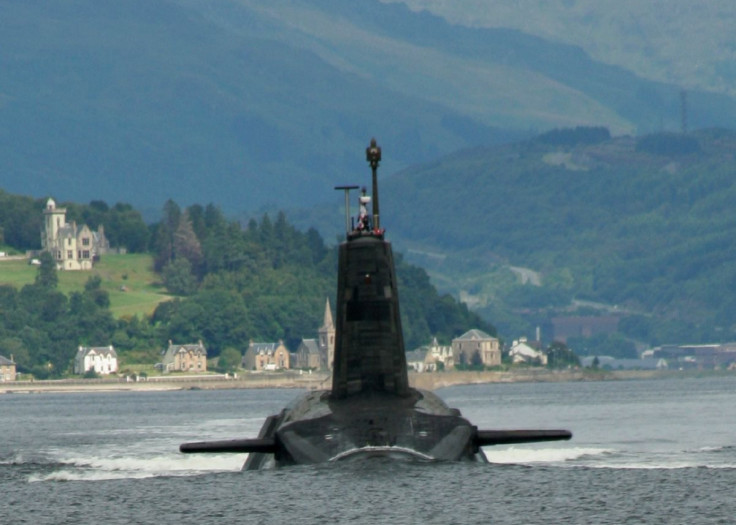Trident: MoD watchdog report reveals skills shortage 'principal threat' to nuclear safety

The Ministry of Defence (MoD) has admitted that a long-standing skills shortage is endangering the safety of the Trident nuclear weapons programme.
The annual report from the MoD watchdog, the Defence Nuclear Safety Regulator (DNSR), states that a lack of staff is a "key strategic issue" and the shortage of experienced nuclear engineers is a "principal threat."
The report, which was released in May without any fanfare, revealed: "The ability of the department to sustain a sufficient number of nuclear suitably qualified and experienced personnel, both civilian and Royal Navy, remains the principal threat to the delivery of nuclear safety." It adds: "Attention is required to ensure maintenance of adequate safety performance."
The findings emerged just prior to the revelation the UK government had reportedly spent £85m ($124m) on a secretive programme to upgrade its Trident nuclear weapons.
It was claimed by The Times that roughly £3bn had already been spent on the Trident replacement programme without parliamentary approval.
According to the watchdog's analysis, which was brought to light by investigative outfit The Ferret, the issues have been mounting since 2006. "The developing UK civil nuclear programme is ensuring that nuclear skills are increasingly at a premium in the broader market place," the report states.
It goes on to say that despite a number of government recruitment initiatives "vulnerability remains in this small and highly skilled [civilian] group" and that while safety or security has not yet been compromised by the problems, the "lack of resilience increases the potential for project and programme delays."
Dr Phil Johnstone, a nuclear specialist from the Science Policy Research Unit at the University of Sussex told The Ferret: "It must be questioned whether there will be sufficient numbers of highly skilled experienced workers to maintain the rigorous regulatory standards and safety culture surrounding such activities."
Additionally, an MoD spokesperson said: "The national skills shortage in nuclear trained personnel affects industry and government alike, including the MoD. There are a number of measures in place to address the issue and since publication of the nuclear industrial strategy in 2013, the sector has made good progress on skills development."
The issue of Trident safety was controversially raised last year after disclosures by a Royal Navy employee called William McNeilly, who was aided in speaking out about concerns by the whistleblowing platform WikiLeaks.
In an in-depth report about an alleged slew of issues, McNeilly claimed: "If you've been through airport security after 9/11 you'll have seen how thorough the security is nowadays. If airport security and nuclear weapon security were both compared to prisons, the airport would be Alcatraz and Base security would be house arrest."
He continued: "Multiple times I complained to people of various ranks about being able to walk straight down to the Missile Compartment with a bag on my back which wasn't checked. With the only security being lazy security guards that don't check IDs properly.
"I strongly believe that the prime minister and most people that defended Trident had no idea about how dire the situation is. This is not the time to judge on what they did when they didn't know; it's about what they do now that they know."
McNeilly was given a dishonourable discharge from the Royal Navy in June 2015.
© Copyright IBTimes 2025. All rights reserved.






















